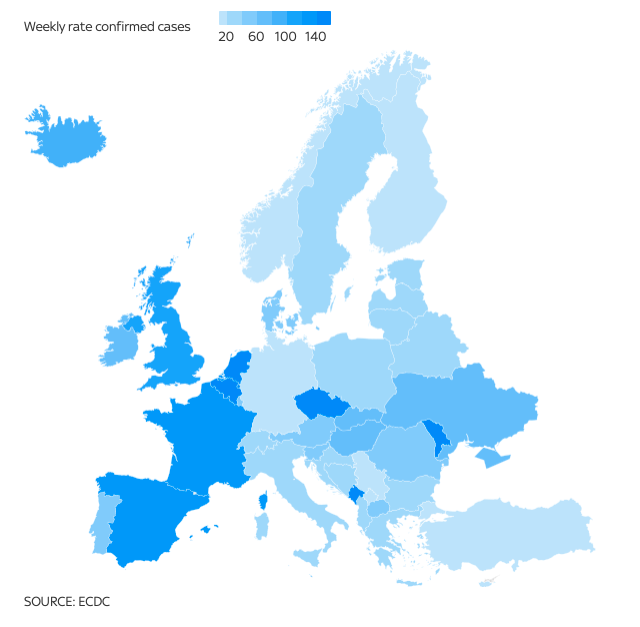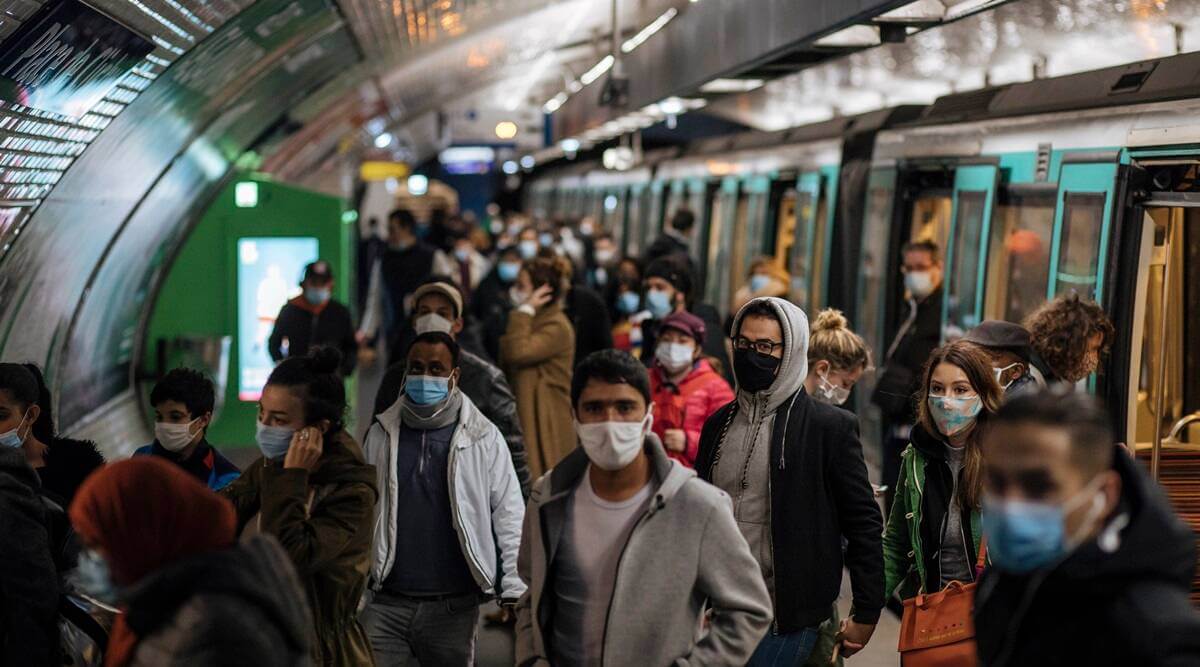As Europe faces another surge in the spread of the coronavirus, countries across the continent are re-imposing lockdown measures to avoid a health crisis similar to the one witnessed during the first wave of the pandemic.

France and Germany, two of the biggest and most influential economies of the European Union, have imposed complete lockdowns after facing a concerning number of daily cases. Last week, with half of the country’s intensive care units occupied, French President Emmanuel Macron announced a new lockdown, which will continue to be in place till December 1. He said, “The virus is spreading across France at a speed that even the most pessimistic did not predict … As elsewhere in Europe, we are overwhelmed by a second wave that will probably be more difficult and deadly than the first.” According to the new measures, French residents will only be allowed to step outside their homes to purchase essential goods, medical supplies and for exercise. Moreover, they will be required to fill out an “attestation” form, similar to the one required during the first lockdown. Non-essential businesses, such as restaurants and bars, have been asked to shut down. However, schools and creches will continue to remain operational.
Similarly, Germany too has gone into a partial lockdown since November 2. Over the weekend, German Chancellor Angela Merkel, who was applauded for her success during the first wave in Germany, said that the measures were necessary “to avoid an acute national health emergency.” Like France, while bars, gyms, cinemas and theatres have been shut down, schools and creches remain open. Similar lockdowns have also been imposed in Belgium, which was one of the worst hit in the European Union.
On the other hand, Spain and Italy, which were also severely impacted during the first wave, have imposed restrictions, which do not amount to a complete lockdown. On October 25, Spain announced a national emergency and imposed a “nationwide curfew” from 11 pm to 6 am. Similarly, Spain also declared a six-month state of emergency. Both countries have been witnessing resistance from far-right demonstrators who are protesting the restrictions. Spain and Italy’s decision to refrain from a complete lockdown is a likely result of these protests, combined with the devastating impact of the first wave on their economy.
Criticizing the decision of the European countries to reimpose lockdowns and other restrictive measures, American President Donald Trump, on Sunday, said, “Europe imposed draconian lockdowns and cases were surging and deaths were surging but think of it, draconian. Now they have to do it all over again. What the hell are they doing? I think I’ll go over and explain it to them.” This coincides with the U.S. witnessing its “third wave,” with 31 states recording at least “one record-high day” of cases.
Similar hesitance towards imposing lockdowns is also prevalent amongst leaders within Europe. For instance, Boris Johnson, the Prime Minister of the United Kingdom, has repeatedly rejected the idea of re-imposing a lockdown after facing pressure from members of his party. However, after a resurgence in cases, he announced another lockdown, which he claims will be “less prohibitive, less restrictive.” Nevertheless, he said, “We have got to be humble in the face of nature. In this country, alas, as in much of Europe, the virus is spreading even faster than the reasonable worst-case scenario of our scientific advisers.” Similarly, on Sunday, Austrian Chancellor Sebastian Kurz, too, after rejecting several calls for imposing a lockdown to curb the alarming rise in cases, followed Germany and France and imposed restrictive measures.

